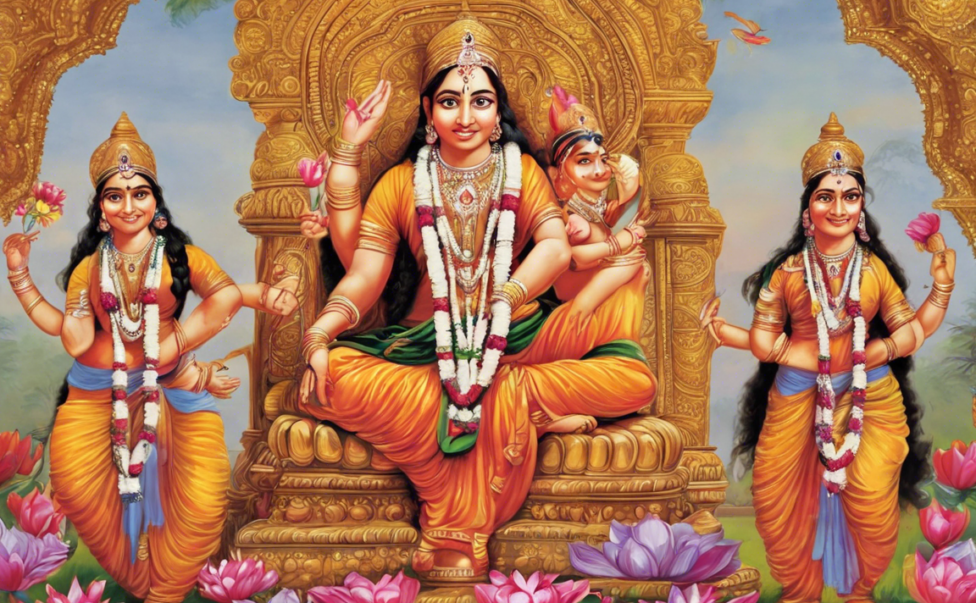Understanding India’s 2024 General Elections in Hindi
India is gearing up for its next general elections in 2024, a significant event that will shape the country’s political landscape for the coming years. The elections in India are the largest democratic exercise in the world, with over 900 million eligible voters. In this blog post, we will delve into the intricacies of India’s general elections, exploring key aspects such as the electoral process, major political parties, key players, and potential outcomes.
The Electoral Process
The electoral process in India is governed by the Election Commission of India, an autonomous constitutional authority responsible for conducting free and fair elections. The general elections are held every five years, unless dissolved earlier.
- Constitutional Provisions: The Constitution of India provides for the elections of the Lok Sabha (House of the People), the lower house of Parliament, which consists of 545 members.
- Voter Eligibility: Indian citizens aged 18 and above are eligible to vote, subject to certain disqualifications.
- Multi-phase Polling: Due to the vast size and diversity of the country, elections are held in multiple phases across different states.
Major Political Parties
India has a multi-party system, with several national and regional parties vying for power. Some of the prominent parties include:
- Bharatiya Janata Party (BJP): The ruling party at the center, known for its right-wing nationalist ideology.
- Indian National Congress (INC): One of the oldest political parties in India, with a center-left ideology.
- Aam Aadmi Party (AAP): A party known for its anti-corruption stance, with a significant presence in Delhi.
- All India Trinamool Congress (AITC): A regional party with a strong presence in West Bengal.
Key Players
In the run-up to the 2024 elections, several key players are likely to play a crucial role in shaping the political narrative:
- Narendra Modi: The current Prime Minister and the face of the BJP, known for his charismatic leadership.
- Rahul Gandhi: The scion of the Nehru-Gandhi family and a prominent leader of the INC.
- Arvind Kejriwal: The Chief Minister of Delhi and the face of the AAP, known for his grassroots connect.
- Mamata Banerjee: The Chief Minister of West Bengal and a fierce critic of the BJP.
Potential Outcomes
The 2024 general elections in India are poised to have several potential outcomes, depending on various factors such as public sentiment, economic performance, and regional dynamics:
- Continued BJP Rule: The BJP-led National Democratic Alliance (NDA) could secure a consecutive term based on its development agenda and nationalist rhetoric.
- INC Resurgence: The INC, buoyed by anti-incumbency sentiments and strategic alliances, could stage a comeback at the center.
- Regional Dynamics: Regional parties could play a crucial role in forming alliances and shaping the government at the center.
Frequently Asked Questions (FAQs)
- What is the role of the Election Commission of India in general elections?
-
The Election Commission of India is responsible for overseeing the conduct of elections, including voter registration, candidate nominations, polling, and result declaration.
-
How are seats allocated in the Lok Sabha after the elections?
-
Seats in the Lok Sabha are allocated based on the results of the general elections, with a party or coalition needing a majority to form the government.
-
Can non-resident Indians (NRIs) vote in Indian elections?
-
NRIs are not eligible to vote in Indian elections unless they are physically present in their respective constituencies at the time of polling.
-
What is the significance of coalition politics in India?
-
Given the diverse political landscape in India, coalition politics plays a crucial role, with parties often forming alliances to secure a majority in the Lok Sabha.
-
How does the Indian electoral system ensure representation for marginalized communities?
-
The Indian electoral system includes provisions such as reserved constituencies and quotas to ensure representation for marginalized communities, including Scheduled Castes and Scheduled Tribes.
-
What role do exit polls play in general elections in India?
-
Exit polls are conducted by various media outlets to predict the outcome of elections based on voter responses after they have cast their votes. While they provide an indication, actual results may vary.
-
How are electronic voting machines (EVMs) used in Indian elections?
-
EVMs are used extensively in Indian elections to facilitate smooth and transparent polling. They have multiple safety features to prevent tampering and ensure the integrity of the electoral process.
-
What are the key issues likely to influence the 2024 general elections in India?
-
Some of the key issues expected to influence the 2024 elections include economic growth, job creation, social welfare schemes, national security, and identity politics.
-
What is the significance of social media in shaping electoral campaigns in India?
-
Social media platforms play a significant role in modern electoral campaigns in India, allowing parties to reach a wide audience, mobilize support, and shape public opinion.
-
How do political parties in India fund their election campaigns?
- Political parties in India fund their election campaigns through a combination of donations from individuals, businesses, and other sources, as well as party funds and government allocations for recognized parties.
As India braces itself for the 2024 general elections, the political landscape is set to witness dynamic shifts and realignments. The outcomes of these elections will not only determine the future governance of the country but also reflect the diverse voices and aspirations of its citizens.

